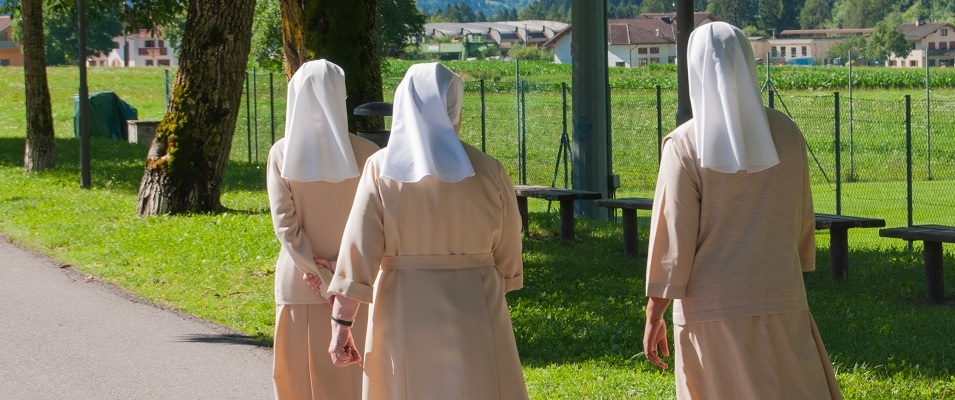
* Please note that this piece contains spoilers for the film Women Talking.
Recently I had the opportunity to watch Women Talking, a film that was recently nominated for two Academy Awards and took home the Oscar for Best Adapted Screenplay. The film’s title is especially poignant considering it tells the story of women who lack a voice in their world.
The book upon which the movie is based is authored by Miriam Toews, who grew up in Steinbach. Along with many here in the southeast, I share Toews’s Mennonite heritage and story takes place against this ethnic, cultural, and religious background.
Directed by Sarah Polley, the movie’s plot is inspired by the real-life events of women living on a Mennonite colony in Bolivia after the discovery that many of them had been systematically drugged and sexually assaulted. The film is gritty and grief-filled, yes—but without being graphic.
The first thing that struck me as poignant was the stark difference in male and female gender roles illustrated as part of colony life. Being familiar with the patriarchal roots of the Mennonite colonies I came from just a few generations ago, I wasn’t surprised.
What did surprise me was the obvious connection the fictional colony had to an establishment I have been part of for nearly my entire life.
For the fictional Bolivian colony in the story, Toews used the name “Molotschna Colony.” This happens to be the original name of the Evangelical Mennonite Conference (EMC). According to the University of Regina, the EMC changed its name from Molotschna Mennonite Colony (or Kleine Gemeide) in 1952 after it went through significant doctrinal reform that differentiated it from the original Mennonite practices.
By this time, approximately 200 Kleine Gemeide families had immigrated to North America during the 1870s as one part of a larger Mennonite migration.1
Until three years ago, I had been part of the EMC by familial association or church attendance. Now, as a self-proclaimed “ex-vangelical” woman, it is impossible to separate the effect of my cultural heritage from my identity and my ability to recognize the patriarchy and misogyny that spills from Christian and other religious groups into the oppressive societal conditions and governing policies women still deal with in 2023.
In the first 10 minutes of the movie, Frances McDormand’s character, Scarface Janz, articulates the command that billions of women have been issued since our human awareness began: “Want less.”
Two words that hold infinite pain.
Nearly at the end of the film, we finally receive a resounding protest from Jessica Buckley’s character, Mariche, who makes this plea: “We want to think.”
Indeed, Mariche rightly names three things these women want: “We want our children to be safe. We want to be steadfast in our faith. And we want to think.”
It is a dignified request, undignified in its request.
It’s a horror that any human being should have to state these things. I know the book/movie is an “imagined response to real events,” but women have been asking for similar things for so long that it boggles the mind.
Feminist issues aside, the film’s screenplay adaptation deserved its Oscar, in my opinion. I really enjoyed the philosophical dialogue among the women and how the book was so richly and loving translated to the screen. The cast gave a master class in ensemble acting.
I was especially moved by the dynamic between the generations of women. The older women were able to construct and hold a container for the others to experience and express their emotion through a patient democratic process.
Claire Foy’s character, Salome, embodied the rage of the women in the colony. Many women have learned to hold in their rage about women’s issues and would find it cathartic to watch this character’s portrayal on screen.
When the women began to sing hymns as a response to their turmoil, I was reminded starkly of a dark time in my own family’s life when I needed to attend the funeral of a loved one gone too soon. Like the women on screen, here too we sang our pain—and the hearty singing that Mennonites do so well carried the nuance of grief in a way that only sound can convey, the keening-of-old arranged in four-part harmony.
Besides being a welcome break from the dialogue-heavy script, I think the point of the prayers and songs in the movie is that it was true to the culture, and also that it was the best way to visually and aurally interpret Toews’s complicated relationship with her heritage. I heard her love and despair for a people finding their way out of bondage.
In fact, I heard love and despair in so much of the movie’s soundtrack, and in the imagery of the movie as well, especially the scene during which the women leave en masse. Both sentiments fuelled their choice to leave, as Toews and so many other women, Mennonite or not, know all too well.
Having chosen to leave evangelical Christianity and become disconnected from my heritage, I found this scene especially moving. In some way, I felt like the women who left the colony at the end of the movie reflect how I felt leaving my own communities and supports. I felt that I had no choice. I felt that I wouldn’t survive if I stayed. I felt grief, but also hope.
Amidst the societal upheaval of the last few years and the haemorrhaging of the EMC church, and the church at large in North America, I have observed a movement that hearkens to one thing as much as it beckons to another. The church is changing and women are leading the way.
But it’s tough to lead when you’re not even “allowed” to. Both the EMC and the Mennonite Brethren Church have been embroiled in gender-discrimination issues as agents for interdenominational change struggle to incrementally move the archaic institutions forward in an attempt to catch up with other religious bodies. Last year, a book meant to highlight female leadership within the Mennonite Brethren Church removed contributions from one of its writers in an act of censorship.2 And the same denomination showed us just last month that excommunication is alive and well in Manitoba.3
The resistance to the evolution of the Christian faith in the west is largely white, older, and male—which is not surprising since they overwhelmingly hold the purse strings to fund the conglomerate, and many times they are the only ones who can vote at meetings.
Even if the harm is not exactly the same as what was faced by the on-screen women who were given a 24 hours to respond to the crisis of multiple counts of tranquilization and rape within their community, comparisons can be made to those of us who have lost our voices due to the overt or covert conditioning of religion. It’s the same story reverberating across culture, place, and time.
Toews and Polley seem to have found their voices.
This Mennonite has moved on, yet she can’t resist looking back now and again. If you can call this a Mennonite feminist movement, I find it all captivating to watch as I continue to find my own voice outside the church. And I’ll continue to watch where it’s going from the solid ground of my own newfound path.




















